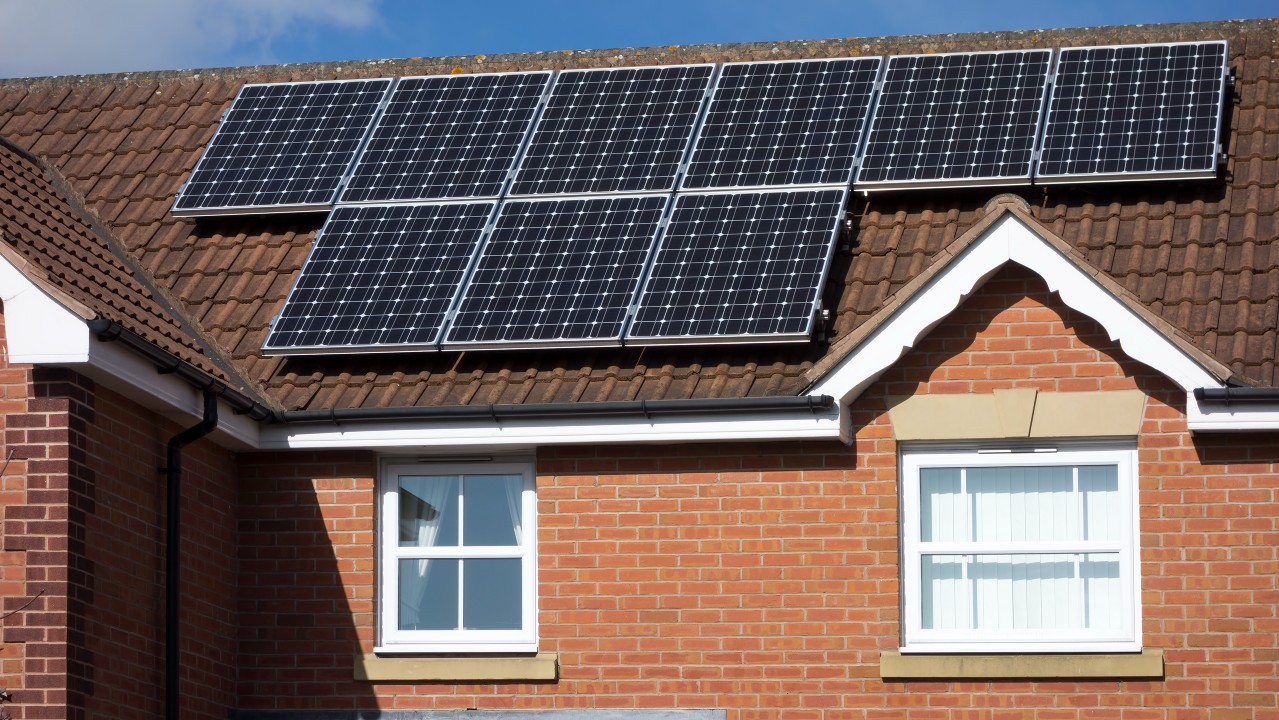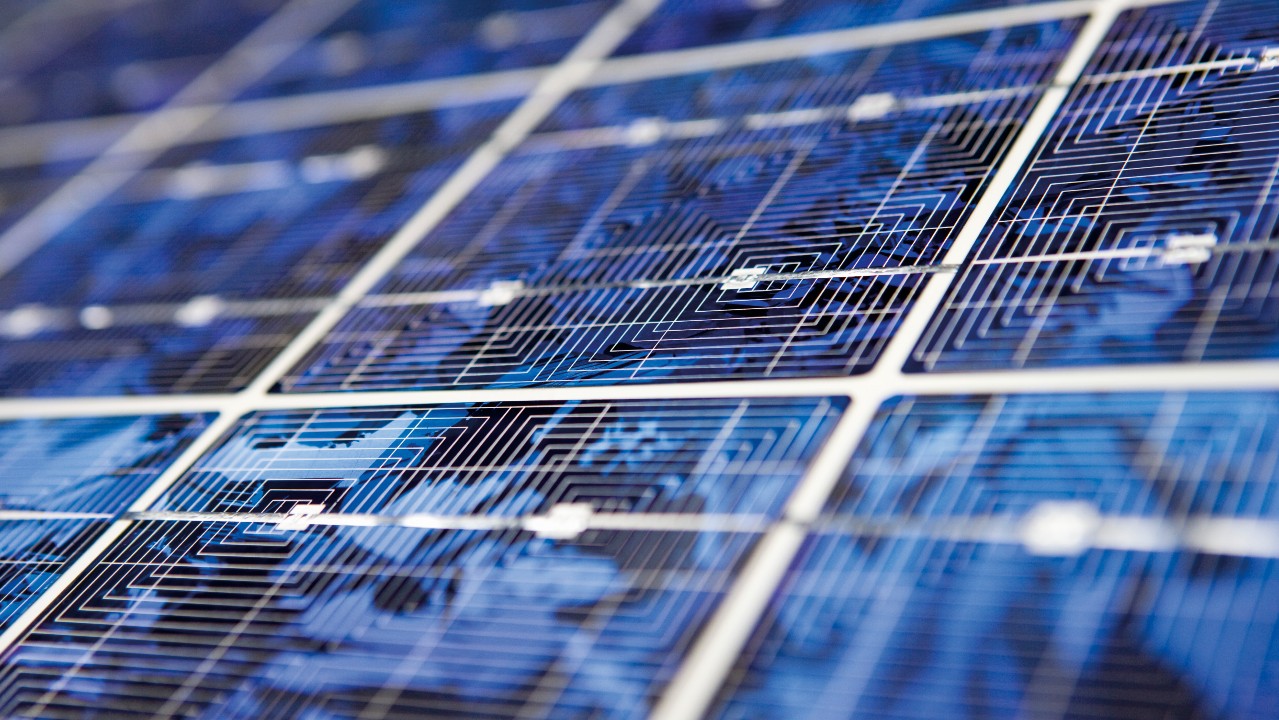Are solar panels worth it? How to save money and energy
As energy prices soar, are solar panels worth it as an alternative energy solutions.

Get the world’s most fascinating discoveries delivered straight to your inbox.
You are now subscribed
Your newsletter sign-up was successful
Want to add more newsletters?

Delivered Daily
Daily Newsletter
Sign up for the latest discoveries, groundbreaking research and fascinating breakthroughs that impact you and the wider world direct to your inbox.

Once a week
Life's Little Mysteries
Feed your curiosity with an exclusive mystery every week, solved with science and delivered direct to your inbox before it's seen anywhere else.

Once a week
How It Works
Sign up to our free science & technology newsletter for your weekly fix of fascinating articles, quick quizzes, amazing images, and more

Delivered daily
Space.com Newsletter
Breaking space news, the latest updates on rocket launches, skywatching events and more!

Once a month
Watch This Space
Sign up to our monthly entertainment newsletter to keep up with all our coverage of the latest sci-fi and space movies, tv shows, games and books.

Once a week
Night Sky This Week
Discover this week's must-see night sky events, moon phases, and stunning astrophotos. Sign up for our skywatching newsletter and explore the universe with us!
Join the club
Get full access to premium articles, exclusive features and a growing list of member rewards.
Are solar panels worth it when it comes to saving money on your energy bills?
In recent years, it's a question more and more people are asking. In 2020, the global output for solar power energy was 156 terawatt-hours, according to the International Energy Agency. Over 13,400 megawatts of that energy was produced by the United Kingdom, which accounted for over a million installations, according to the UK Government. Between 2020 and 2021, the installation of solar panels also increased by an impressive 1.6%. The solar energy market is projected to grow 20.5% to $222.3 billion (around £164 billion) from 2019 to 2026, according to ResearchandMarkets.com.
At present the UK is facing an energy bill crisis, which could see bills rise by as much as 50%, according to the Guardian. Ofgem, the energy regulator in the UK, announced an increase in the energy price cap (the maximum amount that energy suppliers can charge) from April 1, 2022. This means that many people are looking to get the most for their money when it comes to energy providers and energy sources, such as solar power. But are solar panels worth it?
What are solar panels?
Solar panels, known as photovoltaics (PV), consist of several semi-conducting cells, typically made from silicon. The silicon is in a crystalline state and sandwiched between two conductive layers, the top layer is seeded with phosphorus and the bottom with boron. When sunlight passes through these layered cells, it causes electrons to move through the layers and generate an electrical charge. The electrical charge can then be harvested and stored to power household appliances, according to the Energy Saving Trust.
The amount of energy solar PV’s produce can change depending on their size and location, but typically produce between 200-350 watts per panel per day, with each PV system consisting of between 10 to 15 panels. At present, electrical consumption for the average household in the UK ranges between 8 to 10 kilowatts per day, according to the energy comparison site UKPower.co.uk.

Benefits
The main financial difference between traditional energy sources and solar power is the upfront cost to install a solar PV system. "The installation cost of £4,800 [around $6,500] we provide, is for a typical 3.5-kilowatt domestic installation, including labour but not including a battery. This is the average size for domestic systems in the UK and requires around 15 to 20 square metres [around 162 to 215 square feet] of panels," Brian Horne, senior insight & analytics consultant at the Energy Saving Trust, told LiveScience in an email.
Although the initial cost is substantial, the average operational lifespan for a solar PV system is around 30-35 years, although some manufacturers claim much longer, according to the office of Energy Efficiency and Renewable Energy.
Get the world’s most fascinating discoveries delivered straight to your inbox.
There is also the option to invest in storage batteries to collect any excess energy a solar PV system generates. Or you could sell it.
If a PV system produces more electricity than your household uses, there is the potential to sell excess energy to energy suppliers under the smart export guarantee (SEG). SEG's are only available in England, Scotland and Wales.
Under the scheme, different energy companies set tariffs on how much they are willing to buy any excess electricity from your solar PV system, along with other renewable energy sources such as hydro or wind turbines. For example, energy provider E.ON is currently offering up to 5.5 pence (around 7 cents) per kilowatt, as of February 2022. There is no set rate of pay under an SEG and suppliers can offer fixed or variable rates, however, the prices must be above zero at all times, according to the Energy Saving Trust.
"For a home with solar panels and the Smart Expert Guarantee, in London and South East England, whose occupants are home the majority of the time, could see a saving of £385 [around $520] a year, with a payback of around 16 years [figures correct November 2021]", says Horne.
According to Horne, solar panels are not just an investment to save money on your energy and perhaps even make money in the process, but they can add value to your home. "There is clear evidence that homes with a better energy performance are selling for higher prices and solar panels are one factor influencing that performance. It seems likely that the impact of solar panels on house prices will increase following recent price rises across the market and the associated focus on ways to reduce energy requirements and switch to renewable energy," says Horne. A report by the trade association Solar Energy UK found that solar power systems could increase the sale price of a house by £1,800 (around $2,400).
Of course, solar energy isn't only beneficial to our bank accounts but helps to reduce the devastating effects that the energy industry has on our environment. The economic sector that emits the most greenhouse gas is electricity and heat production. The sector contributes 25% of the total global emissions, according to the United States Environmental Protection Agency.
As a sustainable and renewable energy source, solar PV systems are carbon neutral and emit no greenhouse gases. According to the Energy Saving Trust, an average UK home implementing a PV system could reduce carbon emissions by 1.3 to 1.6 metric tonnes (1.43 to 1.76 tons) per year.
"You can also combine solar PV with other renewable technologies such as heat pumps. These technologies work well with each other, as the solar PV output will sometimes power the heat pump directly, helping to keep your heating costs down," says Horne. "We advise consulting with your installer for exact maintenance requirements before you commit to installing a solar PV system," he adds.

Limitations
Solar PV panels aren’t without their limitations and unfortunately not every home is compatible with a solar PV installation. "There may be some limitations depending on the size and amount of suitable roof space available to install PV panels," says Horne.
Another consideration is whether or not you require planning permission to install a solar PV system. Listed buildings, first-floor apartments and homes in conservation areas, may require permission before installation.
The weather can affect how efficient a solar PV system is at producing energy. Although solar panels will be exposed to enough sunlight to produce electricity, including cloudy days and during the winter, the maximum efficiency might not always be achieved, according to E.ON.
"However large your system, you won’t always be able to generate all the electricity you need and will need to support it with the grid. However, you may be able to adapt your electricity consumption, such as using appliances when the panels are generating electricity in the day," says Horne.
There are also other costs to consider than installing a solar PV system, such as maintenance. The electricity produced by solar panels is known as direct current (DC), however, household appliances use alternating current (AC), therefore an inverter is installed to convert the DC. These inverters have a lifespan of between 5 to 10 years, according to energy comparison site GreenMatch.co.uk. The price of a replacement can vary depending on the supplier, however, according to the standards organisation MCS (Microgeneration Certification Scheme), this cost is £800 (around $1,088).
Providers
Getting the best deal on a solar PV system for your home means shopping around. "We advise choosing a certified system and a certified installer when installing any type of home renewable energy system. Costs can vary between installers and products, so we recommend getting quotes from at least three installers before starting any work," Horne advises. "The Microgeneration Certification Scheme is the best place to start when finding accredited installers in your area," says Horne.
It’s a no-brainer that solar panels are worth it when it comes to their positive impact on the environment. As for their financial viability, a solar PV system has the potential for big savings, but hefty initial costs. Each home is different in terms of energy usage and capacity for solar panels, which will ultimately affect how much money you can save with a solar PV system. To help you make a final decision the Energy Saving Trust has a handy calculator to estimate how much you could save with solar energy.
Additional resources
For more information about solar panel energy and head to Solar Energy UK and the Energy Saving Trust. You can also find out which energy companies offer SEG licences on this handy list by Ofgem.

Scott is a staff writer for How It Works magazine and has previously written for other science and knowledge outlets, including BBC Wildlife magazine, World of Animals magazine, Space.com and All About History magazine. Scott has a masters in science and environmental journalism and a bachelor's degree in conservation biology degree from the University of Lincoln in the U.K. During his academic and professional career, Scott has participated in several animal conservation projects, including English bird surveys, wolf monitoring in Germany and leopard tracking in South Africa.
 Live Science Plus
Live Science Plus










